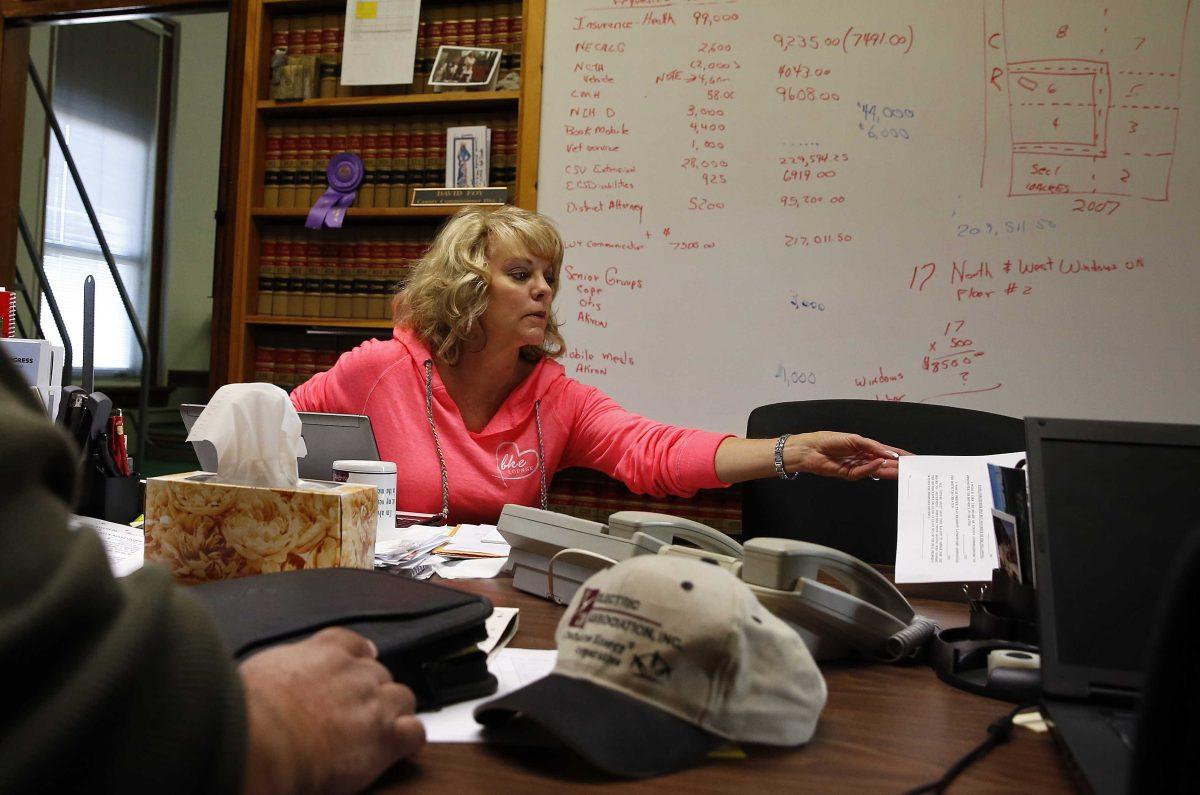It looks like we will finally add a star to our flag to make room for the 51st state. No, not Puerto Rico — north Colorado. Recently, five rural counties of northeast Colorado voted in favor of secession from the rest of the state, and if they are allowed to secede, they will set a dangerous precedent for political stability in our nation.
But in the end, the secession is futile because they need the approval of Congress, which at the moment can’t even keep its own House united.
The last time counties of an existing state successfully seceded was West Virginia in 1863, and that was during the Civil War.
The background of the northern Colorado secession movement is tied directly to the wider politics of the Obama versus Tea Party era. In the past few years, Colorado has taken a sharp turn to the left — the state voted for Barack Obama in 2008 and 2012. The state government, currently dominated by Democrats, passed historic gun control laws, civil unions, legalized marijuana and set major renewable energy standards.
With all of the progressive legislation being passed, not everyone is satisfied with the direction the state is going. The same could be said for the people of Orleans, Saint John and our own East Baton Rouge Parish in Louisiana.
One major grievance the rural Coloradoan counties have is with the new alternative energy standards which declare that cooperative electric associations have to get 20 percent of their energy from renewable sources by 2020. These new standards will cause many small farmers to go under and be taken over by large corporations that can afford to meet these new standards.
In response to the secession movement, Republicans in Colorado plan to propose a new type of redistricting next year that would draw the lines based on land mass instead of population for state Senate seats, which would give the rural communities a bigger voice in the state.
Looking at this political battle, one may wonder what Louisiana would look like with seceding parishes.
Currently, the city of Baton Rouge is facing a quasi-secession movement. The unincorporated area of south Baton Rouge might soon become its own city called St. George. The new city is conservative, white and affluent, while the city of Baton Rouge is more liberal, black and poor. The people behind the attempt for St. George to become a city claim economic and educational benefits for the 100,000 or so who live there.
Last year, there was an attempt at a breakaway school district, but was shut down. This time, instead of trying again, they are trying to break away the whole city.
The only parishes that stick out from the rest of this red state are Orleans and Saint John parishes, northeast Louisiana and northern East Baton Rouge Parish because these parishes are liberal. They are not satisfied with what Jindal and the State legislature have done to the state, from charter schools, to government layoffs, to billions in cuts to health care and education, to rejecting the Medicaid expansion. These liberal parishes are neglected by the Republican-controlled state government.
Secession must not be a means for political maneuvering. The goal of getting the attention of the state government has been met. If counties are allowed to secede based on political concentration, then eventually all liberal and conservative counties in the country will seek secession as well. Each new state will be isolated from each other, which will lay the foundation for a more serious conflict in the future.
We should be proud of our diversity — not just of race and religion, but of political ideas. If our tolerance of each other’s political beliefs sink to the point of secession, then the next step may be war.
Opinion: Secession in Colorado raises question if South is next
November 12, 2013
In this Nov. 6, 2013 photo, Washington County Commissioner Lea Ann Laybourn works in her office in the rural town of Akron, the county seat of Washington County, Colo. A day earlier, a majority in Washington and four other counties on Colorado’s Eastern Plains voted yes on the creation of a 51st state, largely over residents’ alienation from voters statewide on issues such as civil unions for gay couples, new renewable energy standards, and limits on ammunition magazines. (AP Photo/Brennan Linsley)





